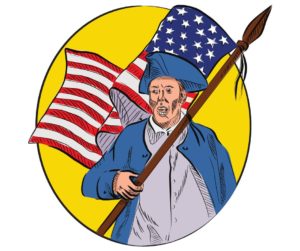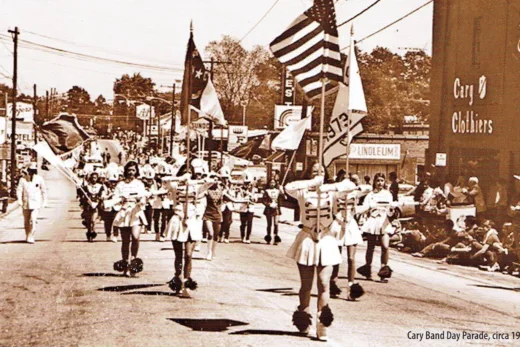The Shot Heard ‘Round the World
This story is an excerpt from my book, A Stroll Through American History.
Battles of Lexington and Concord, April 19, 1775
These battles gave rise to the phrase, “The shot heard ‘round the world.”
At dawn on April 19, almost 80 militiamen had gathered on the town green in Lexington. The militiamen met the 700 British troops which were marching towards Concord. A British officer shouted out for the rebels to drop their arms.
It is unknown which side fired first. But, after the first shot, several British volleys were fired.
As an aside and a bit of a guess, my guess is that the Americans shot first. Why do I say this? Well, the Americans were militiamen and not used to combat, whereas the British troops were well-disciplined soldiers. Of course, I could be incorrect.
When the firing ceased, eight militiamen were dead and nine were wounded. Only one British soldier was injured.
Concord
The British then continued on to Concord to search for arms. The British were not aware that most arms and munitions had already been relocated. Finding only a small amount of what they were searching for, the British decided to burn what little they found, and the fire got a bit out of control.
Hundreds of militiamen occupying the high ground outside of Concord incorrectly thought the entire town was being set on fire by the British.
The militiamen hurried to Concord’s North Bridge, which a small contingent of British soldiers was defending. The British fired first but fell back when the colonists returned fire.
After searching Concord and destroying what they had found, the British prepared to return to Boston. By that time, almost 2,000 militiamen had come to the area, and more were arriving.
The militiamen began to follow the British column. Then, fighting started again, with the militiamen firing at the British.
The Americans were not firing in open-field fighting, the type of European warfare with which the British were familiar, but from behind trees, stone walls, and such.
The British troops panicked and, in an attempt to retreat faster, began throwing away their weapons, outer clothing, and equipment.
Lexington
When the British reached Lexington, they met a contingent of fresh British soldiers that had answered the call for reinforcements.
The British reinforcements did not stop the American attack on the British. The colonists maintained their attack all the way into Cambridge.
The British finally reached the safety of Charlestown Neck, where they had naval support.
Results of Lexington and Concord
The colonists did not seem to aim well that day. As many as 3,500 militiamen firing constantly for 18 miles only killed or wounded roughly 250 British, compared to about 90 killed and wounded on the American side.
The relatively low Continental casualties at the Battles of Lexington and Concord proved that American militiamen could stand up to one of the most powerful armies in the world.
News of the battle quickly spread, and reached London on May 28th.
Impact, an Opinion
The world-wide impact of the Battles of Lexington and Concord is almost incalculable.
Thirteen Colonies entered into battle with their mother country, which had an army and navy that was envied by the world, and the world took notice.
The conflict was no longer a rebellion; it was the Revolutionary War.
“The shot heard ‘round the world.”
This story is an excerpt from my book, A Stroll Through American History.




